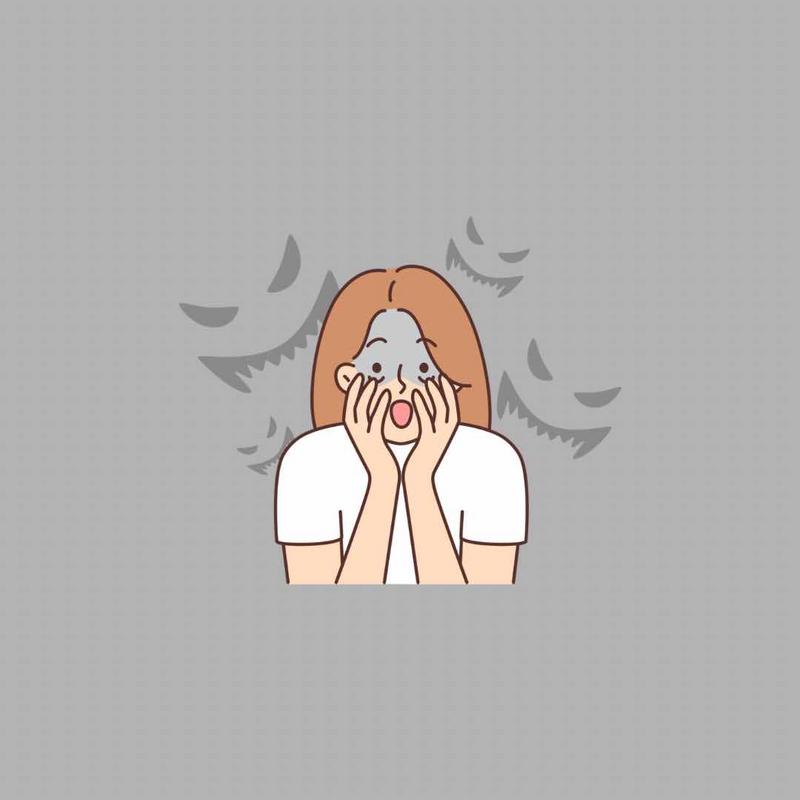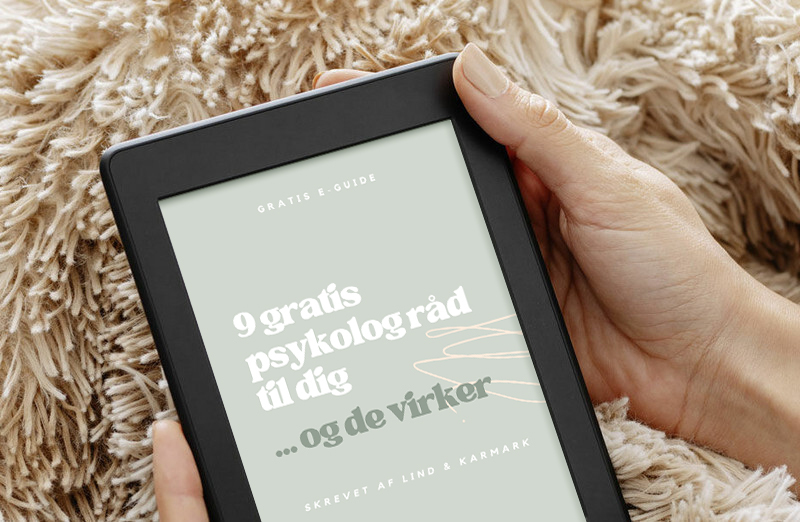Anxiety
Then you’re definitely not alone. Anxiety disorders pose as the most common mental health concern worldwide. Nearly 4% of the world population suffer from an anxiety disorder.

When anxiety controls your life
.. Then it’s not easy or fun to be in your shoes. Untreated anxiety can highly impact one’s life quality and it might at times even feel as if it controls your entire life....
But anxiety doesn’t control you. YOU control your life and we can help you (re)gain that control. You can learn to break free from your anxiety with concrete therapeutic tools and techniques.
Let’s help you achieve your goal of becoming anxiety free.
How do I know if I suffer from anxiety?
The common element in all anxiety disorders is that they feel highly unpleasant and can cause a lot of distress in your daily life. There are several types of anxiety disorders which all have their own specific characteristics. Below you’ll find a brief overview of some common anxiety disorders and a few key points about their characteristics. Perhaps you might recognize yourself in one of the descriptions below. If you still feel a bit uncertain about the type of anxiety you’re dealing with, then please don’t hesitate to contact us.
We’re experts in treating all types of anxiety. Therefore, we can also quickly determine which form of anxiety you might be dealing with and help you navigate through it.
Some of the most common anxiety disorders are:
Characterized by a persistent tendency to worry. The worry is not limited to one specific theme, but can center around different themes and seem difficult to let go of.
Typical symptoms include:
- Muscle ache
- Tension
- Dizziness
- Restlessness
- Stomach ache
- Shaking
- Insomnia
Characterized by intense and recurrent unexpected anxiety attacks. The panic attacks can prompt a lot of fear or a sense of losing control.
Typical symptoms include:
- Pounding or racing heart
- Dizziness
- Feeling of unreality
- Dry mouth
- Sweating
- Trembling
Characterized by a persistent fear of being negatively evaluated by others. Social anxiety differs from normal shyness as the fear and anxiety causes significant distress in one’s daily life.
Typical symptoms of SAD include:
- Intense anxiety when being around other people
- Fear of making a fool out of oneself or being ridiculed
- Social isolation
- Being highly self-critical
- Avoidance of social situations
- Fear of shaking, blushing, sweating or having a sudden need to go to the toilet
Characterized by extreme anxiety for specific situations, activities, or objects. The person will know that the anxiety is excessive and irritational but finds it difficult to control it. As a result, the person might go to great lengths to avoid the feared object, situation, or activity.
Typical phobias include:
- Arachnophobia (fear of spiders)
- Acrophobia (fear of heights )
- Emetophobia (fear of vomit)
- Aerophobia (fear of flying)
- Claustrophobia (fear of enclosed spaces)
- Aichmophobia (phobia of needles and sharp objects)
- Dentophobia (fear of the dentist)
Characterized by a persistent fear of getting sick or having a serious illness. People with health anxiety typically fear illnesses such as cancer, heart problems, sclerosis, or brain tumours.
Typical symptoms include:
- Excessive attention on bodily symptoms
- Misinterpretation of bodily symptoms
- Worries about illness
- Death anxiety
- Excessive checking-behavior
- Fear of overlooking vital bodily signals
PTSD typically occurs after having experience or witnessed a traumatic event. Examples of a traumatic incident could be war, rape, a traffic accident, assault, being robbed, fire or a natural disaster.
Typical symptoms include:
- Flashbacks (reliving the trauma)
- Nightmares
- Avoidance of situations, people or memories reminding one of the traumatic incident
- Insomnia
- Anxiety
- Difficulty controlling one’s temper
- Hypervigilance
- Difficulty concentrating
The symptoms typically develop during the first month after the traumatic event, but in some cases the symptoms emerge later on. It’s normal to feel very shaken up after a traumatic event, but it can significantly impact your life quality when experiencing PTSD.
Is anxiety an illness?
No. Anxiety is merely a feeling which is part of our natural ”fight of flight” response. When we talk about anxiety disorders this ”fight or flight” response has however become overly sensitive. You start to fear things that aren’t actually dangerous. As a result, one starts to engage in a range of strategies which in turn maintains the fearful signals. The things that one fears differ depending on the type of anxiety.
Anxiety disorders are NOT chronic. We have a lot of experience with treating anxiety disorders in our practice and experience great results from our treatment.
How do you treat anxiety?
When you’re dealing with an anxiety disorder it might feel as if you’re trapped in a vicious uncontrollable spiral in which the anxiety merely grows. Therefore, it can also seem difficult to even imagine a way out of it and one can become highly fearful and worried about one’s future. But you don’t have to be! It’s possible to treat all types of anxiety disorders – perhaps you just haven’t received the right form of help yet. We have specialized in treating anxiety disorders and we’re experts in Cognitive Therapy (CBT) and Metacognitive Therapy (MCT). We’ll make sure to tailor the treatment to your needs, so we can target your anxiety in the best way possible!
Please contact us if you are struggling. Help is within reach and can either happen through physical therapy meetings in the clinique or online through a safe and secure online platform.
So whether you are situated on the other side of the earth or you are a foreigner living in Denmark, we'll be able to provide the best therapy for you.
Our e-mail is: kontakt@kognitivpsykologpraksis.dk
We look forward to helping you!
Flere terapi tilbud
Hos Lind & Karmark tilbyder vi terapi både individuelt, i gruppe eller online. Klik på boksene til højre, hvis du vil læse mere.
Er du forældre på udkig efter kvalificeret psykologhjælp til dit barn, så klik på boksen med "Terapi til Børn".
Vi ser frem til at hjælpe!
